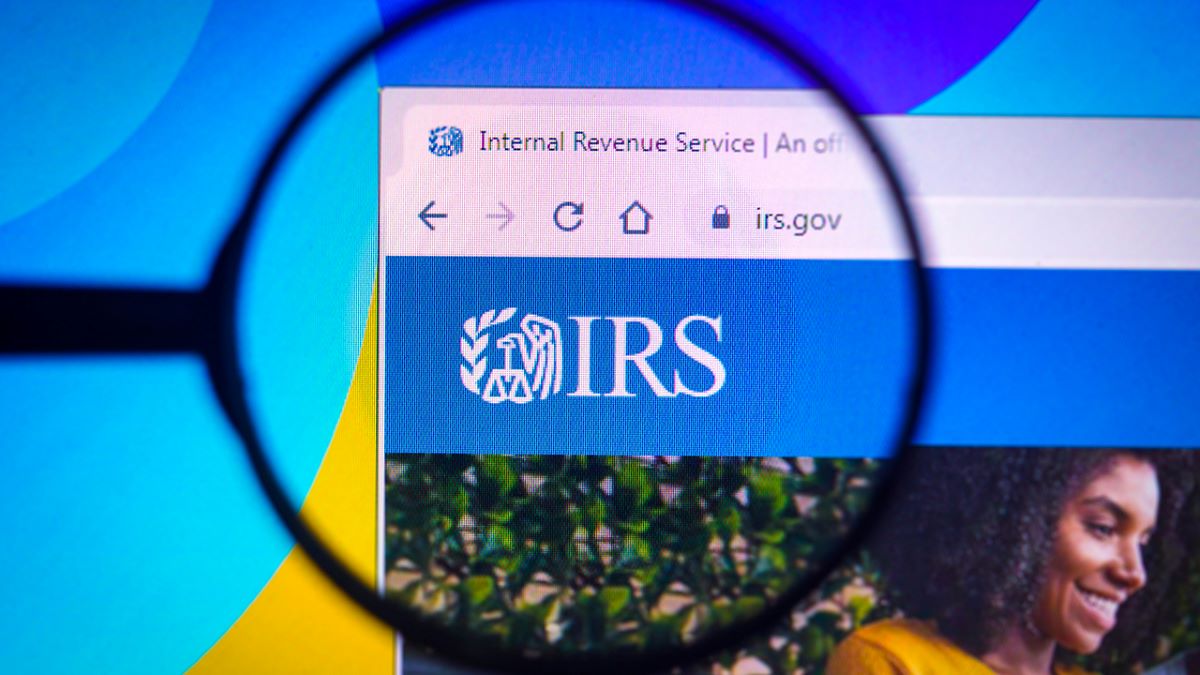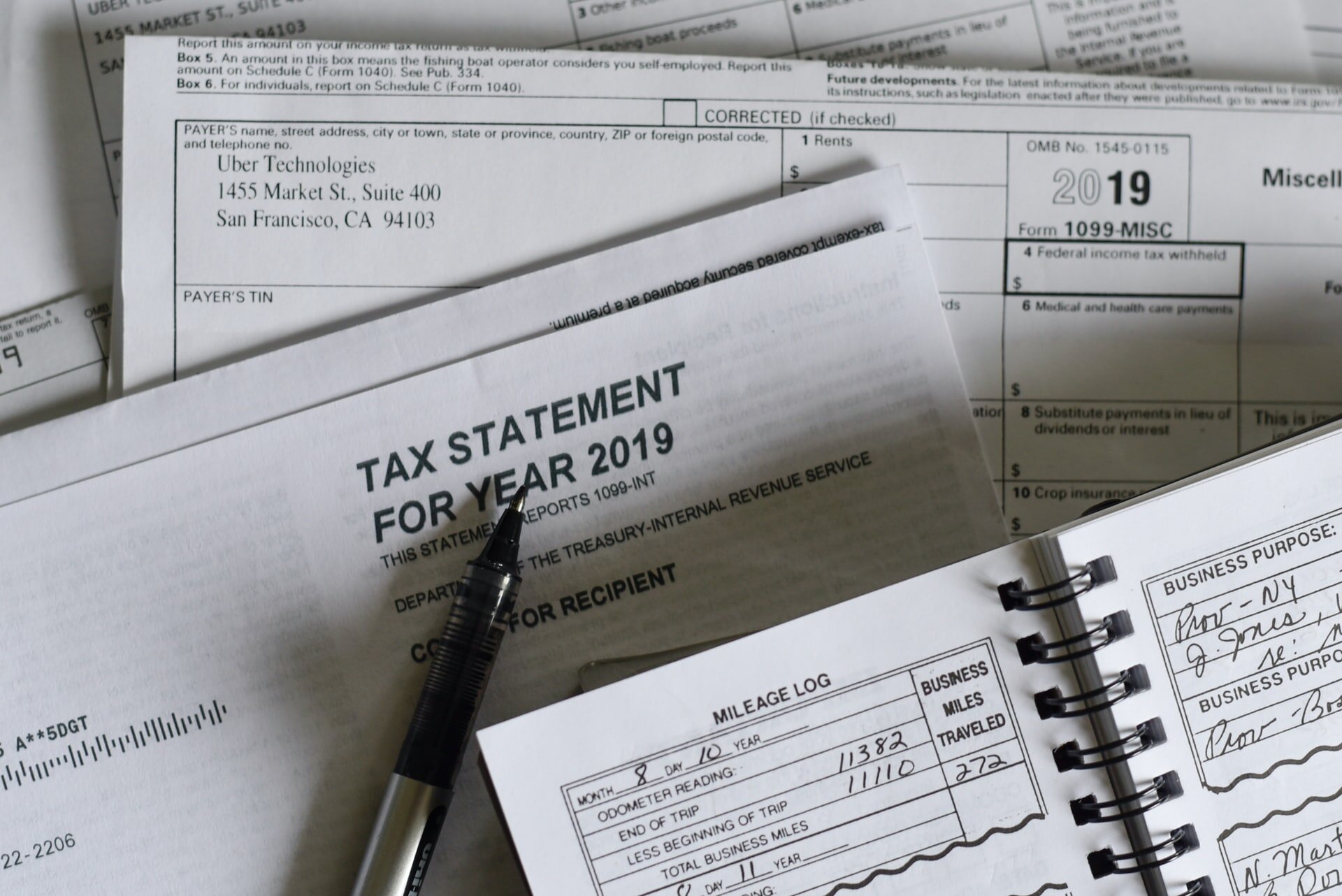

Finance
How To Fight The IRS And Win
Published: October 31, 2023
Learn effective strategies to fight the IRS and come out victorious. Gain valuable finance insights to leverage in your battle against tax disputes and win.
(Many of the links in this article redirect to a specific reviewed product. Your purchase of these products through affiliate links helps to generate commission for LiveWell, at no extra cost. Learn more)
Table of Contents
Introduction
Welcome to our comprehensive guide on fighting the IRS and emerging victorious. Dealing with the Internal Revenue Service (IRS) can be a daunting experience for many individuals and businesses. However, it is important to understand that you do have rights and options when it comes to resolving tax disputes.
Whether you are facing an audit, a tax bill you believe is unfair, or other challenges from the IRS, arming yourself with the right knowledge and strategies can make a significant difference in the outcome. In this article, we will explore various ways to fight the IRS and increase your chances of winning.
It is crucial to note that while fighting the IRS can be challenging and time-consuming, it is not impossible. With the help of proper planning, evidence, and expert counsel, you can level the playing field and stand up for your rights. So, let’s dive into the strategies that will equip you to effectively challenge the IRS and come out on top.
Throughout this guide, we will cover essential aspects of fighting the IRS, including understanding your rights, gathering evidence, preparing your case, hiring a tax attorney, communicating with the IRS, negotiating a settlement, appealing the decision, and, if necessary, going to tax court. By following these steps, you will be well-positioned to protect your interests and achieve a favorable resolution.
Before we delve into the specifics, it’s important to remember that the information provided in this guide is for general educational purposes only. Each tax situation is unique, and it is advisable to seek professional advice tailored to your specific circumstances.
Now, let’s proceed to the first step in fighting the IRS: understanding your rights.
Understanding Your Rights
When confronted with an issue involving the IRS, it’s essential to have a comprehensive understanding of your rights as a taxpayer. Knowing your rights empowers you to effectively challenge the IRS and protect yourself from unfair treatment. Here are some key rights to be aware of:
- The Right to Representation: As a taxpayer, you have the right to seek representation when dealing with the IRS. This includes the ability to hire an attorney, enrolled agent, or certified public accountant (CPA) to advocate on your behalf and assist you in navigating the complexities of the tax system.
- The Right to Challenge IRS Findings: If the IRS issues an audit or assessment that you believe is incorrect or unfair, you have the right to challenge it. This can be done through various channels, such as providing additional evidence or presenting a formal appeal.
- The Right to Privacy: The IRS is legally obligated to respect your privacy and confidentiality. They cannot disclose your tax information to unauthorized individuals or parties without your consent, except as specified by law.
- The Right to Due Process: You have the right to a fair and impartial process when dealing with the IRS. This means you are entitled to clear communication, reasonable deadlines, and an opportunity to present your case before a neutral decision-maker.
- The Right to Appeal: If you disagree with the outcome of an IRS audit or assessment, you have the right to appeal the decision. This involves requesting a reconsideration by an independent IRS appeals officer who will review your case and potentially offer a resolution.
Understanding these rights is crucial as it lays the foundation for effectively challenging the IRS. By exercising your rights and seeking representation, you can level the playing field and ensure that you are treated fairly throughout the process.
It’s vital to note that while you have rights as a taxpayer, it is also essential to fulfill your obligations. This includes filing accurate and timely tax returns, paying any owed taxes, and maintaining proper documentation to support your claims.
Now that we have explored the importance of understanding your rights, let’s move on to the next step: gathering evidence.
Gathering Evidence
When fighting the IRS, gathering evidence is a crucial step in building a strong case to support your claims. The IRS relies on evidence to make decisions, so it’s important to provide clear and compelling documentation that supports your position. Here are some key points to consider when gathering evidence:
- Keep Detailed Records: Maintaining well-organized and comprehensive records is essential. This includes keeping copies of tax returns, receipts, bank statements, and any other relevant financial documents. These records can help substantiate your deductions, income, or other claims in the event of an audit or dispute.
- Obtain Expert Opinions: In certain situations, it may be beneficial to obtain expert opinions to support your case. For example, you might consult with a qualified appraiser to determine the value of certain assets or seek the advice of a tax professional regarding complex tax matters. These expert opinions can provide credibility and additional weight to your arguments.
- Collect Correspondence: If you have been in communication with the IRS regarding your case, it’s important to keep copies of all correspondence, including letters, emails, and transcripts of phone conversations. These documents can help establish a timeline of events and provide valuable context should a dispute arise.
- Document Relevant Circumstances: If there were extenuating circumstances that affected your tax situation, make sure to document these as well. For example, if you experienced a medical emergency or faced a natural disaster during the tax year in question, gather evidence such as medical bills, insurance claims, or newspaper articles to support your claim for relief or additional deductions.
- Use Technology: Take advantage of modern technology to aid in your evidence-gathering efforts. Utilize digital tools, such as scanning apps or cloud storage platforms, to keep electronic copies of important documents. This not only helps with organization but also ensures that your evidence is easily accessible when needed.
Remember, the quality and reliability of your evidence can significantly impact the outcome of your case. The more comprehensive and persuasive your evidence is, the stronger your position becomes when challenging the IRS. It is always advisable to consult with a tax professional or attorney during this process to ensure that you are gathering the right evidence and presenting it effectively.
Now that you have a clear understanding of how to gather evidence, let’s move on to the next step: preparing your case.
Preparing Your Case
Once you have gathered all the necessary evidence, it’s time to prepare your case for fighting the IRS. Preparing your case involves organizing your documentation, analyzing the strengths and weaknesses of your position, and developing a sound strategy. Here are some important steps to take when preparing your case:
- Organize Your Documentation: Take the time to carefully organize and categorize all the evidence you have collected. This includes keeping your paperwork, digital files, and any supporting materials neatly arranged. A well-organized case not only helps you stay on top of your documents but also demonstrates your diligence and professionalism to the IRS.
- Analyze Your Position: Evaluate your case objectively and identify its strengths and weaknesses. Consider how the evidence you have collected supports your claims and how the IRS may challenge your position. Understanding the vulnerabilities in your case allows you to address them proactively and develop strong arguments to counter any potential objections.
- Consult with a Tax Professional: Seeking guidance from a tax attorney, enrolled agent, or certified public accountant experienced in tax disputes can be invaluable during this stage. A tax professional can provide valuable insights, help you navigate complex tax laws and regulations, and assist in developing a solid strategy for your case.
- Consider Settlement Options: While you may be determined to fight the IRS, it’s also important to consider the possibility of a settlement. Depending on the specifics of your case, a settlement may be a viable option that can save you time, money, and stress. Discuss settlement possibilities with your tax professional and weigh the pros and cons before making a final decision.
- Prepare Your Arguments: Based on your analysis and consultation with a tax professional, develop strong and persuasive arguments to present to the IRS. Anticipate the counterarguments the IRS may raise and be prepared to address them. Clear, concise, and well-supported arguments are more likely to sway the IRS in your favor.
- Understand the Process: Familiarize yourself with the specific procedures and requirements for challenging the IRS. Be aware of deadlines, filing procedures, and any additional documentation or forms that may be necessary. Following the prescribed process correctly and timely is crucial for a successful outcome.
Preparing your case is a critical step in fighting the IRS. By carefully organizing your documents, analyzing your position, seeking professional advice, and developing a solid strategy, you can set yourself up for a stronger and more successful challenge against the IRS.
Next, we will discuss the important considerations when hiring a tax attorney to assist you in your case.
Hiring a Tax Attorney
When facing a significant tax dispute with the IRS, hiring a tax attorney can provide invaluable expertise and guidance throughout the process. A tax attorney specializes in tax law and can help you navigate the complexities of the legal system while advocating for your rights. Here are key considerations when hiring a tax attorney:
- Expertise and Experience: Look for a tax attorney with expertise and experience in handling cases similar to yours. They should have a deep understanding of tax laws, IRS procedures, and the intricacies of tax disputes. Research their background, qualifications, and track record of success in tax-related matters.
- Specialization: Tax law is a specialized field, and not all attorneys focus on tax issues. Engage a tax attorney who specifically concentrates on tax matters to ensure they are up-to-date with the latest tax laws and regulations.
- Communication and Responsiveness: Effective communication is vital when working with a tax attorney. You need an attorney who is responsive, listens to your concerns, and maintains open lines of communication. They should be able to explain complex legal concepts in understandable terms and keep you informed about the progress of your case.
- Reputation and Recommendations: Seek recommendations from trusted sources, such as friends, family, or other professionals in the finance or legal industry. Online reviews and testimonials can also provide insight into an attorney’s reputation and client satisfaction.
- Cost and Fee Structure: Inquire about the attorney’s fee structure upfront. Some tax attorneys charge by the hour, while others may offer flat fees for specific services. Understand the billing process and ensure it aligns with your budget and expectations.
- Rapport and Trust: Trust and rapport between you and your tax attorney are essential. You must feel comfortable working with them, confident in their abilities, and trust their advice and guidance throughout the course of your case.
When hiring a tax attorney, consider scheduling an initial consultation to discuss your case and assess whether they are the right fit for your needs. During this meeting, ask questions about their experience, approach to handling cases, and how they plan to represent you against the IRS.
Remember, a qualified tax attorney can provide critical support, protect your rights, and significantly increase your chances of success when fighting the IRS.
Now, let’s move on to the next step: communicating with the IRS.
Communicating with the IRS
When dealing with the IRS, effective communication is essential for a successful resolution to your tax dispute. Clear and concise communication helps to ensure that your case is properly understood, and it can also help to establish a cooperative and professional relationship with the IRS. Here are some important considerations when communicating with the IRS:
- Be Prompt and Responsive: Timely responses to IRS inquiries or requests for information demonstrate your willingness to cooperate and resolve the issue. Failing to respond promptly can complicate your case and may lead to additional penalties or interest.
- Keep Records of All Communications: Maintain a record of all written and verbal communication with the IRS, including dates, times, names of the individuals you spoke with, and the content of the conversation. This documentation can serve as evidence if there are any disputes or misunderstandings throughout the process.
- Be Professional and Courteous: Maintain a professional and respectful tone when communicating with the IRS. Avoid making confrontational or emotional statements, as this can hinder the progress of your case. Keep in mind that the IRS agents you interact with are following established protocols and procedures.
- Use Certified Mail for Important Correspondence: When sending any crucial documents or formal correspondence to the IRS, consider using certified mail with return receipt requested. This provides proof of delivery and ensures that your documentation reaches the appropriate department or individual.
- Seek Clarification: If you receive correspondence from the IRS that is unclear or raises questions, do not hesitate to contact them for clarification. It is better to seek clarification and fully understand their expectations than to make assumptions that may result in unnecessary complications.
- Keep a Copy of Everything: Make copies of all documents you send to the IRS and retain them for your records. This includes tax returns, supporting documentation, correspondence, and any other relevant materials. Having a comprehensive file of all communications and submissions ensures that you can reference them accurately if needed.
Remember, maintaining clear and open lines of communication with the IRS is crucial throughout the process of fighting your tax dispute. By following these guidelines and approaching your interactions with professionalism and respect, you can facilitate a smoother resolution of your case.
Next, we will explore the process of negotiating a settlement with the IRS.
Negotiating a Settlement
When facing a tax dispute with the IRS, negotiating a settlement can be a viable option to resolve the issue without the need for further litigation or a lengthy legal battle. By reaching a mutually agreeable settlement, you can potentially reduce your tax liability, penalties, and interest. Here are key steps to consider when negotiating a settlement with the IRS:
- Assess Your Position: Evaluate your case and objectively assess the strength of your arguments and the risks involved. Understanding your position and the potential outcomes allows you to determine your negotiating strategy.
- Consult with a Tax Professional: Seek guidance from a tax attorney or a qualified tax professional experienced in settlement negotiations. They can assess the merits of your case, identify potential settlement options, and represent your interests during negotiations.
- Present Your Case: Prepare a persuasive argument that supports your request for a settlement. Clearly explain your financial situation, any extenuating circumstances, and provide supporting evidence that demonstrates your inability to pay the full tax liability or the unfairness of the IRS’s assessment.
- Explore Available Settlement Options: The IRS offers several settlement options, including an Offer in Compromise (OIC), an Installment Agreement, or Currently Not Collectible status. Your tax professional can help you determine which option is most suitable for your circumstances and guide you through the process.
- Submit a Formal Proposal: If you decide to pursue a settlement option, follow the prescribed procedures and submit a formal proposal to the IRS. Ensure that all required forms and documentation are included and that your proposal clearly outlines the terms of the settlement you are seeking.
- Negotiate Responsibly: During the negotiation process, remain professional and responsive to any requests or inquiries from the IRS. Be prepared to provide additional documentation or clarification as needed. Keep in mind that a willingness to cooperate and engage in constructive dialogue can significantly improve your chances of reaching a favorable settlement.
- Review and Accept the Settlement: If the IRS agrees to your settlement proposal, carefully review the terms and conditions before accepting. Ensure that you understand the obligations and any long-term implications. Once you have accepted the settlement, fulfill your responsibilities accordingly.
Negotiating a settlement with the IRS can be a complex and intricate process. Having the guidance of a knowledgeable tax professional significantly increases your chances of achieving a favorable outcome.
It’s important to note that settlement negotiations may not always be successful. In such cases, further appeal options may be available, including requesting a review by the IRS Office of Appeals or pursuing your case in tax court. Consulting with a tax professional can help you navigate these additional steps if necessary.
Next, let’s explore the process of appealing the decision made by the IRS.
Appealing the Decision
If you disagree with the outcome of your tax dispute with the IRS, you have the right to appeal the decision. The appeals process provides an opportunity for an independent review of your case and can potentially lead to a more favorable resolution. Here are important steps to consider when appealing the decision:
- Review the Decision Letter: Carefully read the decision letter from the IRS, which outlines their findings and the basis for their decision. Understand the specific issues being appealed and the deadline for filing an appeal.
- Understand the Appeals Process: Familiarize yourself with the appeals process and the requirements for filing an appeal. Consult IRS Publication 5, “Your Appeal Rights and How to Prepare a Protest” to gain a clear understanding of the process and the necessary documentation.
- Consult with a Tax Professional: Working with a knowledgeable tax attorney or a tax professional experienced in appeals can greatly enhance your chances of a successful outcome. They can evaluate your case, help you construct a solid argument, and guide you through the appeals process step by step.
- Prepare a Protest: Draft a formal written protest that clearly and concisely outlines the reasons why you disagree with the IRS decision. Support your arguments with relevant facts, evidence, and applicable tax laws or regulations.
- Submit the Protest and Supporting Documentation: File your written protest along with any supporting documentation, such as additional evidence, relevant court cases, or authoritative sources. It is crucial to adhere to the specified submission guidelines and provide all necessary information.
- Engage in Settlement Discussions: During the appeals process, you may have the opportunity to engage in settlement discussions with an IRS appeals officer. Consider these discussions as an opportunity to negotiate a resolution that is mutually acceptable.
- Participate in Appeals Conferences: If necessary, attend an appeals conference where you can present your case directly to an IRS appeals officer. Clearly articulate your arguments and respond to any questions or concerns raised during the conference.
- Review the Appeals Decision: After the appeals process concludes, carefully review the appeals decision letter. It will outline the outcome of your appeal and any further steps you must take, if applicable.
While appealing the decision can be a complex and time-consuming process, it provides an opportunity for an impartial review of your case. Working with a tax professional who specializes in appeals can greatly assist you in navigating this process effectively.
If the appeals process is unsuccessful or if you disagree with the outcome, you may have the option to pursue your case in tax court. It is advisable to consult with a tax attorney to determine the best course of action based on your specific circumstances.
Now, let’s explore what happens if your case goes to tax court and how to increase your chances of winning.
Going to Tax Court
If you are unable to reach a satisfactory resolution through the IRS appeals process, you may choose to take your case to tax court. Tax court provides an impartial forum for resolving disputes between taxpayers and the IRS. Here are important factors to consider when going to tax court:
- Evaluate the Merits of Your Case: Before proceeding to tax court, thoroughly assess the strengths and weaknesses of your case. Consider the evidence you have, the arguments you can make, and the potential outcome of the court’s decision. This evaluation will help you determine if pursuing litigation is the right avenue for your situation.
- Retain the Services of an Experienced Tax Attorney: Going to tax court requires specialized knowledge of tax laws and court procedures. It is advisable to hire a tax attorney who has experience in tax court cases. They can guide you through the process, advocate for your rights, and present your case effectively.
- File a Petition with the Tax Court: To initiate the tax court process, you must file a petition within the specified timeframe outlined in the IRS decision letter. The petition must state the specific issues being challenged and why you believe the IRS’s determination is incorrect.
- Engage in Pre-Trial Proceedings: Prior to the trial date, there may be opportunities to engage in pre-trial proceedings, such as discovery and settlement discussions. Working with your tax attorney, gather additional evidence, request information from the IRS, and explore the possibility of a settlement with the IRS Chief Counsel’s Office.
- Prepare Your Case: Collaborate closely with your tax attorney to prepare a strong case for trial. Review the evidence, identify key legal arguments, and ensure that all necessary documentation is organized and ready to be presented in court. Develop a clear and persuasive trial strategy that maximizes your chances of success.
- Present Your Case in Tax Court: On the trial date, appear in tax court with your tax attorney and present your case before a judge. Adhere to courtroom etiquette, be respectful, and follow all instructions given by the judge. Present your evidence, call any necessary witnesses, and present compelling legal arguments to support your position.
- Review the Tax Court Decision: Once the trial concludes, await the decision of the tax court judge. The court will issue a written decision that explains the outcome and any further steps you need to take, such as payment arrangements if applicable.
- Consider Appeal Options: If you are dissatisfied with the tax court decision, you may have the option to appeal the decision to a higher court, such as the US Court of Appeals. Seek advice from your tax attorney on the feasibility and potential success of an appeal.
Going to tax court is a complex and formal process. It is critical to have a knowledgeable tax attorney by your side who can navigate the intricate procedures, present a compelling case, and increase your chances of a favorable outcome.
Remember, pursuing litigation can be costly and time-consuming. Before deciding to go to tax court, carefully weigh the potential benefits against the associated risks and costs. Consulting with a tax attorney is paramount in making an informed decision about whether tax court is the right course of action for your specific case.
Now let’s explore the strategies to increase your chances of winning your case in tax court.
Winning Your Case
When it comes to winning your case in tax court, careful preparation, strategic presentation, and adherence to legal procedures are paramount. Although the outcome of any legal proceeding is never guaranteed, following these key strategies can increase your chances of success:
- Thoroughly Understand the Facts and Law: Familiarize yourself with the relevant tax laws, regulations, and court precedents that apply to your case. Assess the facts and evidence in detail to identify strong arguments and potential weaknesses. Having a solid understanding of the facts and law allows you to present a compelling case in court.
- Work Closely with Your Tax Attorney: A knowledgeable and experienced tax attorney is a crucial asset in winning your case. Collaborate closely with your attorney to develop a comprehensive legal strategy tailored to your specific circumstances. Your attorney can guide you through the procedural aspects of the court process, advise on the presentation of evidence, and articulate strong legal arguments.
- Presentation of Persuasive Evidence: Organize and present your evidence in a clear, logical, and convincing manner. Ensure that all relevant documents, records, and expert opinions are properly submitted and presented to the court. Strong evidence that supports your position can greatly enhance your credibility and chances of winning.
- Effectively Communicate Your Arguments: Clearly and concisely communicate your legal arguments, both orally and in writing. Articulate how the evidence and applicable laws support your position, addressing any potential counterarguments raised by the opposing party. Use language that is accessible to the court, avoiding jargon or overly complicated explanations that may confuse the judge.
- Be Respectful and Professional: Maintain a respectful and professional demeanor throughout the proceedings. Show deference to the court, opposing counsel, and witnesses. Actively listen to the judge’s instructions and questions, responding thoughtfully and honestly. Present yourself as a credible and cooperative party, which can impact the judge’s perception of your case.
- Stay Focused and Adhere to Court Procedures: Pay close attention to court procedures and rules. Strictly comply with deadlines, filing requirements, and any other court instructions. Prepare well in advance for court appearances to ensure you are well-prepared and organized. By demonstrating respect for the court’s process and procedures, you enhance your credibility and the likelihood of success.
- Consider Settlement Possibilities: Even during the course of the trial, it may be beneficial to explore settlement opportunities with the IRS, especially if the circumstances or evidence change. Engage in settlement discussions or even court-ordered mediation if it presents a favorable resolution that aligns with your objectives.
- Evaluate Appellate Options: If you are not satisfied with the tax court’s decision, consult with your tax attorney regarding the feasibility and potential success of appealing the decision to a higher court. Understanding your appellate options and pursuing them within the prescribed timeframe is essential if you believe there are legal or procedural errors that warrant further review.
Winning your case in tax court requires a combination of meticulous preparation, effective communication, and adherence to legal procedures. Remember, tax court cases can be complex and challenging, so having a skilled tax attorney by your side is crucial to navigate the intricacies of the process and present a strong, compelling argument in court.
Now that you are equipped with strategies to increase your chances of winning, let’s conclude our guide on fighting the IRS and achieving a successful resolution to your tax dispute.
Conclusion
Navigating a tax dispute with the IRS can be a daunting and stressful experience. However, armed with the right knowledge, strategies, and professional guidance, you can effectively fight the IRS and achieve a successful resolution to your tax issues. Throughout this comprehensive guide, we have explored important steps and considerations to help you in your journey to combat the IRS and come out victorious.
We started by emphasizing the importance of understanding your rights as a taxpayer and knowing the options available to you. Armed with this knowledge, you can confidently assert your rights and navigate the tax dispute process with the IRS.
We then delved into crucial aspects such as gathering evidence, preparing your case, and hiring a tax attorney. These steps are vital in building a strong foundation to challenge the IRS effectively. By organizing your documentation, evaluating your position, and securing expert guidance, you set yourself up for a more favorable outcome.
Effective communication with the IRS is another essential element in fighting your tax dispute. By staying prompt, responsive, and maintaining professionalism, you can foster a cooperative relationship and better position yourself for a favorable resolution.
When negotiation becomes necessary, understanding the settlement options available to you and engaging in productive discussions can save time, money, and stress. Considering a settlement while keeping your interests in mind is a prudent approach.
If the dispute remains unresolved, appealing the IRS decision may be your next step. Understanding the appeals process and working closely with a tax professional can increase your chances of reaching a more favorable outcome.
In some cases, pursuing litigation in tax court may be necessary. Having an experienced tax attorney by your side and adhering to proper courtroom etiquette and procedures will equip you to present your case effectively before the court.
Ultimately, winning your case in tax court requires thorough preparation, strategic presentation, and careful adherence to legal procedures. While success is never guaranteed, following these strategies increases your likelihood of achieving a favorable outcome.
Remember, the information provided in this guide is for general educational purposes only. Each tax dispute is unique, and seeking personalized advice from a tax professional tailored to your specific circumstances is vital.
By staying informed, seeking expert guidance, and taking proactive steps, you can fight the IRS with confidence and increase your chances of success. Remember, you have rights as a taxpayer, and with the right strategies, you can navigate the challenging landscape of tax disputes and emerge victorious.














